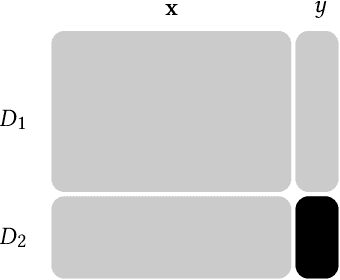Zhongrui Zhao
Practical, Private Assurance of the Value of Collaboration
Oct 04, 2023



Abstract:Two parties wish to collaborate on their datasets. However, before they reveal their datasets to each other, the parties want to have the guarantee that the collaboration would be fruitful. We look at this problem from the point of view of machine learning, where one party is promised an improvement on its prediction model by incorporating data from the other party. The parties would only wish to collaborate further if the updated model shows an improvement in accuracy. Before this is ascertained, the two parties would not want to disclose their models and datasets. In this work, we construct an interactive protocol for this problem based on the fully homomorphic encryption scheme over the Torus (TFHE) and label differential privacy, where the underlying machine learning model is a neural network. Label differential privacy is used to ensure that computations are not done entirely in the encrypted domain, which is a significant bottleneck for neural network training according to the current state-of-the-art FHE implementations. We prove the security of our scheme in the universal composability framework assuming honest-but-curious parties, but where one party may not have any expertise in labelling its initial dataset. Experiments show that we can obtain the output, i.e., the accuracy of the updated model, with time many orders of magnitude faster than a protocol using entirely FHE operations.
 Add to Chrome
Add to Chrome Add to Firefox
Add to Firefox Add to Edge
Add to Edge